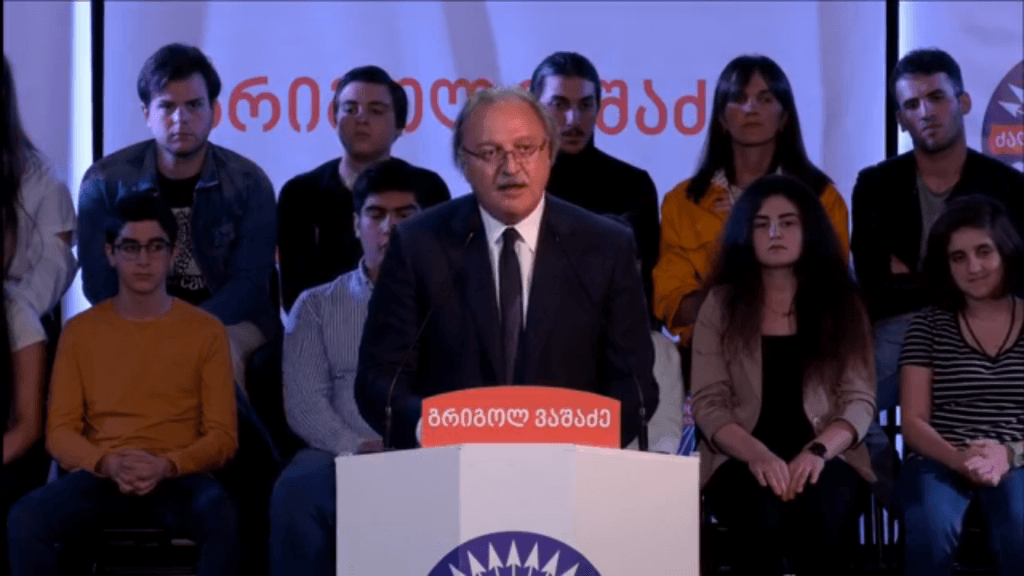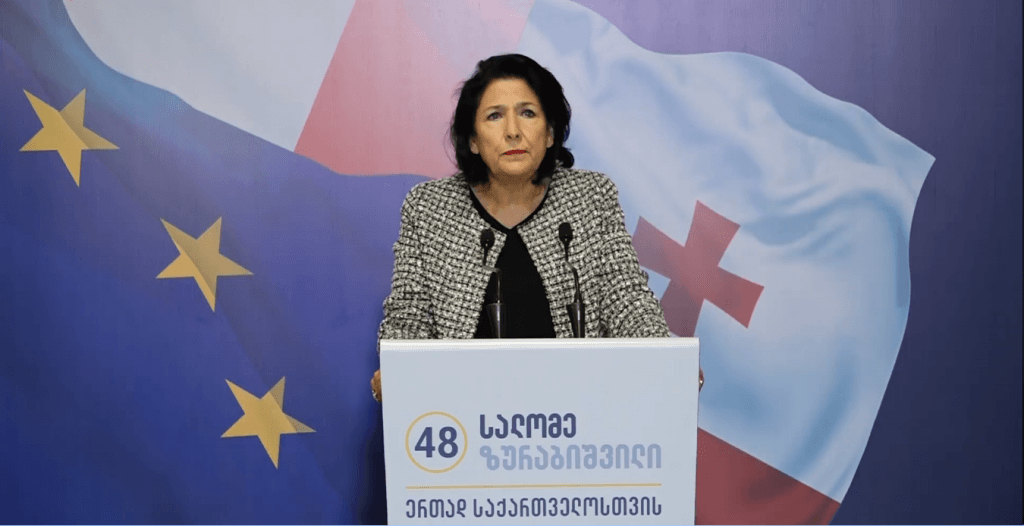Polls Open in Georgia’s Presidential Runoff
It is Wednesday, November 28, and over 3,600 polling stations have opened across the country starting at 8am, so that Georgia’s citizens, benefiting from an unusual mid-week day off, could cast their ballots in an unprecedented Presidential runoff.
The Central Election Commission (CEC) rolls include 3,528,658 eligible voters, 9,781 more than during the first round on October 28. Out of this number,14,929 are registered to vote abroad, at one of the 55 stations opened in 39 countries.
The Georgian military stationed in Afghanistan were the first to do their civic duty having already cast their ballot.
The stations will close at 8pm in Georgia, but will stay open just until midnight abroad, to accommodate those living outside the capital or big cities – where most polling stations are located.
The CEC will start counting the votes the moment Georgia’s stations close and will be uploading the tallies in real time to a special website www.results.cec.gov.ge, in what promises to be a night tense with anticipation for the two contenders and their supporters, who have endured a long and nerve-wrecking campaign replete with mutual accusations and mud-slinging.
To attest whether things are kept free and fair on the election day, 1,330 international observers from 58 organizations and election watchdogs will monitor the runoff, according to CEC. 62 local organizations have also registered 48,503 observers, up from 21,918 during the first round.
Presidential Candidates
Salome Zurabishvili and Grigol Vashadze – who finished with 38.64% and 37.74%, respectively – contest the runoff, and as Thursday dawns, one of them will become the country’s fifth President.
For this is indeed the day where the decision will be made: no minimum participation threshold is needed for the vote to be declared valid in the second round; the candidate who garners more votes will become Georgia’s fifth President.
In an unlikely event, that both candidates receive the same number of votes, the law says Salome Zurabishvili will carry the day, since she won more votes in the first round.
Runoff campaign: Grigol Vashadze launched into campaign immediately after the first round tallies started to solidify, pledging to fight on through the Facebook livestream address on October 29. His social media presence has been significant later on as well, with regular news briefings concerning the allegations of campaign irregularities. The opposition candidate appeared in several political shows at Rustavi 2 TV, a national broadcaster that is leaning strongly towards the opposition.
Vashadze also campaigned in the provinces, holding an indoor gathering in Kutaisi on November 4, together with his party colleagues. There they were also accompanied by politicians from the European Georgia and the Republican Party which threw their weight behind Vashadze after the second round. Georgia’s ex-President Mikheil Saakashvili has also been cheering on the opposition to back Vashadze.
Vashadze structured the runoff campaign around his six-point plan that includes forming the coalition government once and if the opposition succeeds in controlling the parliament, advancing judiciary reform, backing of the fully proportional system for the parliamentary polls, fighting against corruption and nepotism, reducing poverty, and reducing predatory banking.
Promising that he will protect “each and every person from political persecution,” Vashadze claims he will back policies for two-year moratorium on “unfair” loans, increase of pension to GEL 400, teachers’ minimum salary to GEL 1,000 and police minimum wages to GEL 2,000.

In 2006, she quit the post and joined the opposition, starting an unsuccessful venture – Georgia’s Way party, which fell into oblivion since 2010. In 2016, Zurabishvili, ran unopposed by the ruling Georgian Dream to be elected an MP from Tbilisi’s Mtatsminda district.
Runoff campaign: Salome Zurabishvili, apparently shell-shocked by the result, made her official statement two days after the first round, pledging “not to let” Georgia fall “to Russia and Grigol Vashadze.”
Zurabishvili formally resumed the election campaign even later, on November 8, visiting Atotsi village of the Kareli municipality, southwest of Tskhinvali, where the Russian occupation forces launched the construction of barb-wire fences.
Zurabishvili held meetings in Tbilisi and in regions, meeting with women, wine-makers, farmers, sports figures, students, internally displaced persons (IDPs); she addressed the Georgian diaspora and the Georgian army via TV; attended several cultural, sports and religious events together with Prime Minister, Parliament Speaker and other ruling party leaders.
Zurabishvili also spoke of the election environment at Imedi TV on November 25. The presidential hopeful finished her runoff campaign on November 26, at the Enguri dam, which generates electricity for occupied Abkhazia and the rest of Georgia.
Zurabishvili’s personal presence during the runoff was visibly reduced both physically and in the media. The ruling party, which officially endorsed Zurabishvili’s presidential bid, but had previously touted her as an independent, has decided to take over the campaign organization entirely, visibly disappointed by her performance in the first round.
The ruling party leadership, including its founder and chairman Bidzina Ivanishvili, lobbied Zurabishvili in televised interviews, video addresses and on billboards. During the campaign events she appeared with her family and heavyweights from the ruling Georgian Dream-Democratic Georgia (GDDG) party.

This post is also available in: ქართული (Georgian) Русский (Russian)